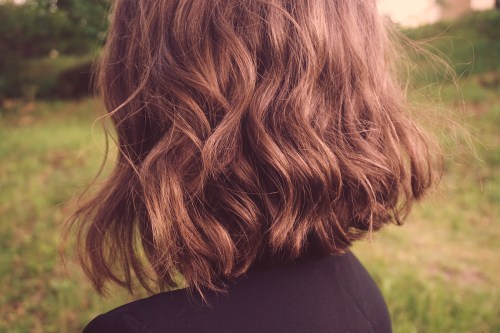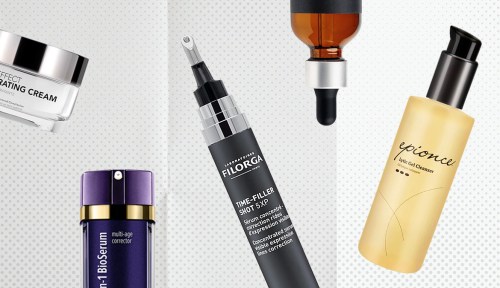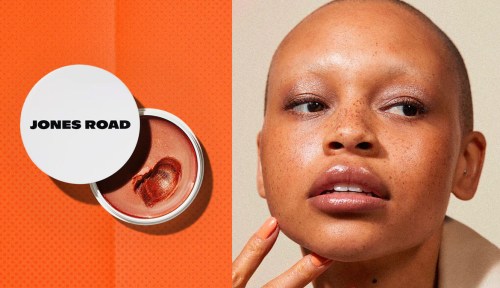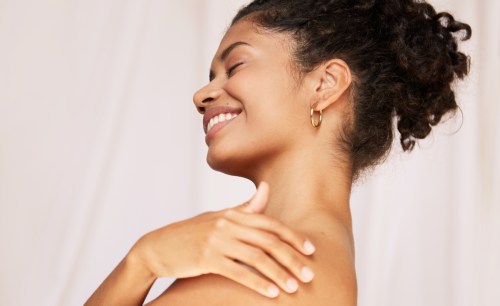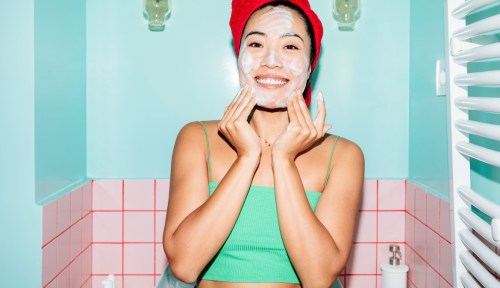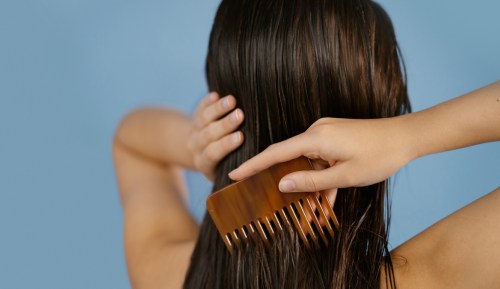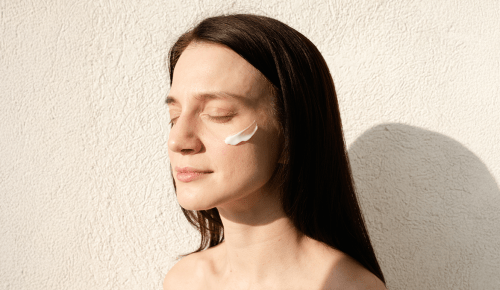Our editors independently select these products. Making a purchase through our links may earn Well+Good a commission
After nine days without washing my hair, I decided to double down on de-gunking my scalp with a glycolic acid treatment and a scalp brush massage. Let me tell you: It was a colossal mistake. Just as you can over-exfoliate your skin, you can over-exfoliate your scalp, and I was left with an itchy, flaky, painful mess on the top of my head that left me searching for the best dry scalp treatment to remedy the situation.
Experts in This Article
hairstylist and certified trichologist based in Colorado
New York City-based dermatologist and dermatologic surgeon
Aside from over-exfoliation (whoops), there are a few other factors that can lead to a dry scalp. Dry winter air, alcohol-based product build-up, over washing, and hard water can all similarly strip your scalp, leading to sensitivity and itchiness due to a lack of natural oils in your follicles. And while you’ll want to avoid these issues altogether by using hydrating shampoos and limiting your washes, once dryness sets in there are ways to hack your routine to treat it. Scroll through for everything you need to know about dealing with a dry scalp, plus the buys for ditching it once and for all.
Signs of a dry scalp
“A dry scalp has skin that is irritated and flakes off,” says Gretchen Friese, a certified trichologist with BosleyMD. Unlike dandruff, which is caused by excess oil that leads to the build-up of dry skin cells that start to flake, dryness occurs because there isn’t enough oil in the area to keep it naturally hydrated. It can be difficult to discern between the two, but if things feel tight and irritated, dryness (not dandruff) is likely to blame.
How to avoid a dry scalp
Since the root of a dry scalp is dehydration, it’s important to hydrate, hydrate, hydrate. “The scalp is an extension of the face: If our faces are dry, we apply hydrating products. The scalp needs the same kind of TLC, so hydrating products are needed for [scalp] dryness,” says Friese. Look for shampoos that are packed with ingredients like hyaluronic acid that will help your scalp retain moisture, and avoid anything with alcohol, harsh sulfates, silicones, and other allergens that will strip the area or cause irritation. The Neutrogena Scalp HB (Hyaluronic) Shampoo ($20) is a great option.
As for the cleansing agent, derms say to look for specific ingredients that don’t wind up being as drying. “Choose shampoos that contain ingredients like sodium lauryl sulfosuccinate or sodium lauryl sulfoacetate which create less of a lather,” says Jennifer Chwalek, MD, a board-certified dermatologist at Union Square Laser Dermatology in New York City. “Look for conditioners that contain 18-methyl eicosanoic acid which can help to balance moisture levels in our hair and prevent hair dryness, which can often occur with a dry scalp. This ingredient is added to conditioners to help moisturize the scalp and smooth the cuticle.” Try the Oribe Intense Conditioner for Moisture & Control ($49) for some serious hydration.
In addition to choosing the right products, certain lifestyle changes can help keep scalp dryness at bay. “Limit over-washing and scrubbing, but don’t under-wash, either because that can also contribute to occasional itching,” says Dr. Chwalek, who recommends shampooing every two to three days at minimum and avoiding hot water. “You can also opt for occasional scalp oil treatments with ingredients like jojoba oil,” she adds.
What to look for in a dry scalp treatment
If you’re unable to prevent a dry scalp from the start, you’ll want to look for the best dry scalp treatment ingredients to help calm it down. “Coconut oil, tea tree oil, shea butter, zinc, apple cider vinegar, some CBD products, and witch hazel are all good ingredients to combat a dry scalp,” says Friese. Dr. Chwalek notes that ingredients like ketoconazole, salicylic acid, selenium sulfide, zinc pyrithione, and tea tree oil—which are usually employed to fight dandruff—can also help with some of the symptoms of scalp dryness. And if the problem persists despite your best efforts, be sure to check in with a board-certified dermatologist to come up with the best plan of action, which may require a prescription remedy.
What is the best shampoo for dandruff
According to Hadley King, MD, FAAD, a board-certified dermatologist, her favorite shampoo for a dry scalp is one formulated with pyrithone zinc. “Kamedis Anti Dandruff Shampoo contains pyrithione zinc to help control dandruff, as well as salicylic acid to help remove dead skin,” says Dr. King. “It is free of SLS but has gentle detergents for a lightly foaming experience that won’t strip your scalp and hair, and it contains botanical extracts with soothing properties.”
How often should you wash your hair if you have dandruff?
If you have dandruff, Dr. King suggests washing your hair less frequently (think less than four times per week) as this can contribute to a flare. “This may be because of yeast on the scalp that contributes to inflammation,” she says. Dandruff shampoos can help for managing the condition, but in the case that it’s not sufficient, Dr. King recommends visiting a dermatologist. “A dermatologist can provide a prescription topical corticosteroid that will help decrease inflammation in the scalp,” Dr. King adds.
The best dry scalp treatment options
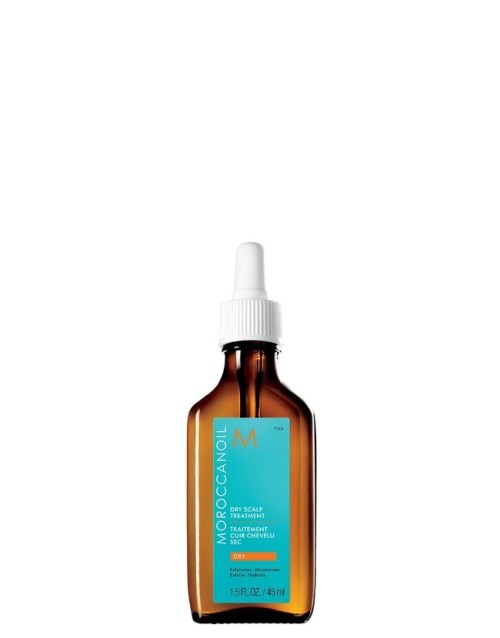
Moroccanoil, Dry Scalp Treatment — $40.00
This flake-fighting treatment packs a one-two punch of ingredients to help with irritation. “It has argan oil, which is rich in vitamin E, and salicylic acid, which can help to treat excess oil and exfoliate any build-up,” says Dr. Chwalek. Simply massage a few drops into your scalp and let it sit for five to 10 minutes then comb through, rinse, and follow up with shampoo and conditioner.

BosleyMD, Scalp Relief Anti-Dandruff Shampoo with Pyrithione Zinc — $27.00
Though this product is technically meant for dandruff, Friese notes that it’s also great for combating dry scalp. “Just like we do with our faces and bodies, exfoliation of the scalp is important,” she says. “I recommend this scrub, which has naturally dissolving sugar particles, for mild but effective scalp exfoliation.” Just be sure to use it gently and sparingly so as not to overdo it on exfoliation (trust me.).
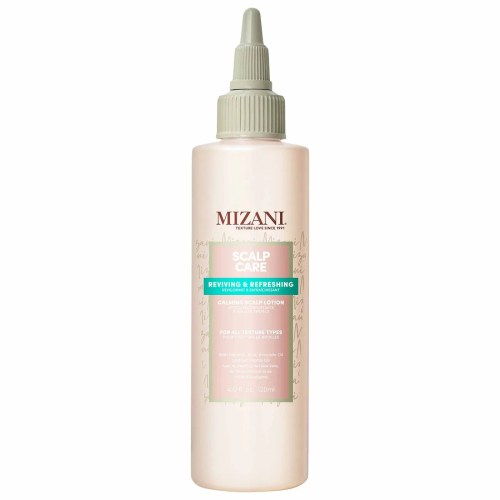
Mizani, Scalp Care Soothing Scalp Lotion — $24.00
For a dry scalp treatment that’s both hydrating and calming, look no further than this lightweight lotion. “It has avocado oil, aloe vera, and menthol to moisturize and soothe the scalp,” says Dr. Chwelak. It’s meant to be left on your scalp, so you can use it wherever you are to fight itchiness on the go.
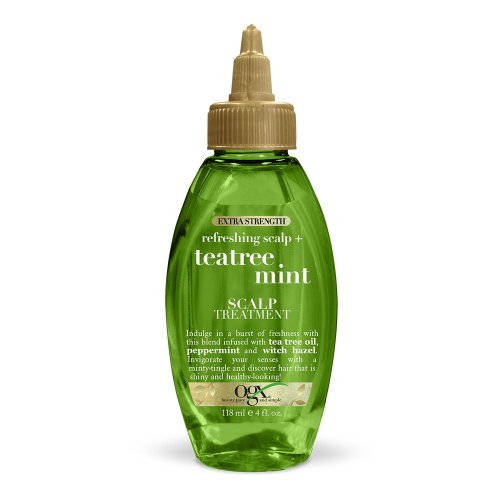
OGX, Extra Strength Dry Scalp Treatment — $8.00
This drugstore dry scalp treatment has an “extra strength” formula that will fend off all kinds of flakes. “It has tea tree oil, which is antibacterial and antifungal, and helps with dandruff as well as mint and witch hazel which can calm inflammation,” says Dr. Chwelak.
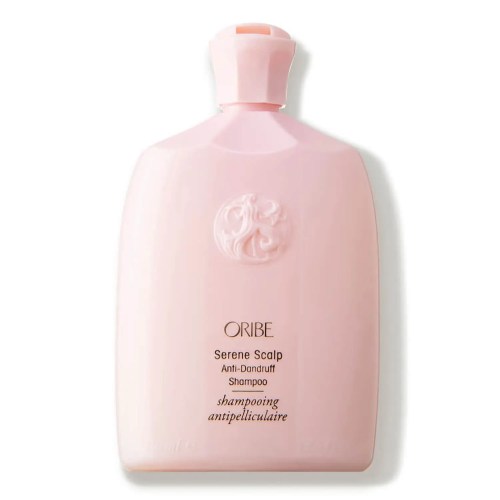
Oribe, Serene Scalp Anti-Dandruff Shampoo — $52.00
If you’re willing to shell out for a dry scalp treatment, this one’s a worthy purchase. “It has salicylic acid which can help to exfoliate flaking as well as vitamins C and E, shea butter, and niacinamide,” says Dr. Chwelak, adding that the last two ingredients are particularly helpful for calming irritation and moisturizing your skin. As Dr. Chwelak puts it, “it’s a nice treat for sensitive scalps.”
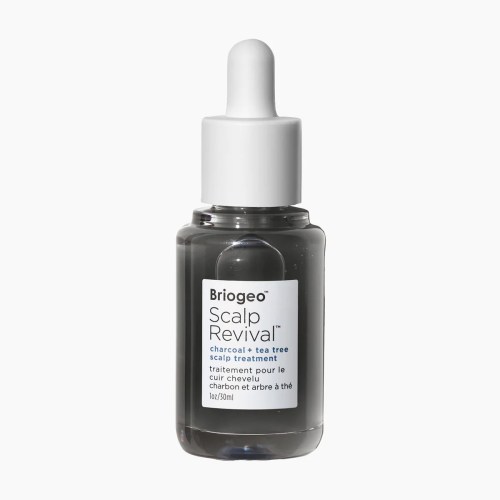
Briogeo, Scalp Revival — $32.00
With a combination of charcoal, tea tree oil, and witch hazel, this serum will detoxify and balance your scalp so that it can stay naturally hydrated on its own. It’s also made with biotin to strengthen and shine your strands.
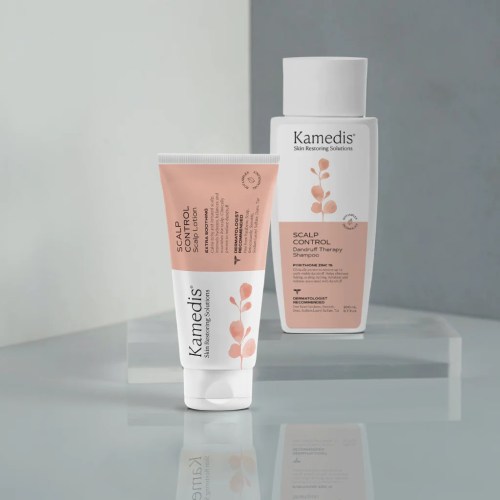
Kamedis, Ultimate Anti-Dandruff Kit — $25.00
Dr. King’s top choice, Kamedis Ultimate Dandruff Kit is formulated with one percent pyrithione zinc to quell signs of dandruff, control itching, and restore hydration to parched scalp cells. The kit comes with a shampoo and lotion, so you get two products for the price of one. To use, apply to wet hair, gently massage, and rinse after a two to three-minute waiting period. Use this and you’re well on your way to anti-itch city.
Need help figuring out if you’re dealing with dandruff or dry scalp? Check out the video below.
Want even more beauty intel from our editors? Join Well+Good’s Fine Print Facebook group (and follow us on Instagram) for must-know tips and tricks.
Sign up for the Well+Good SHOP Newsletter
Get exclusive deals on wellness, beauty, fitness, and food products that have been hand-picked by our editors.
Got it, you've been added to our email list.
